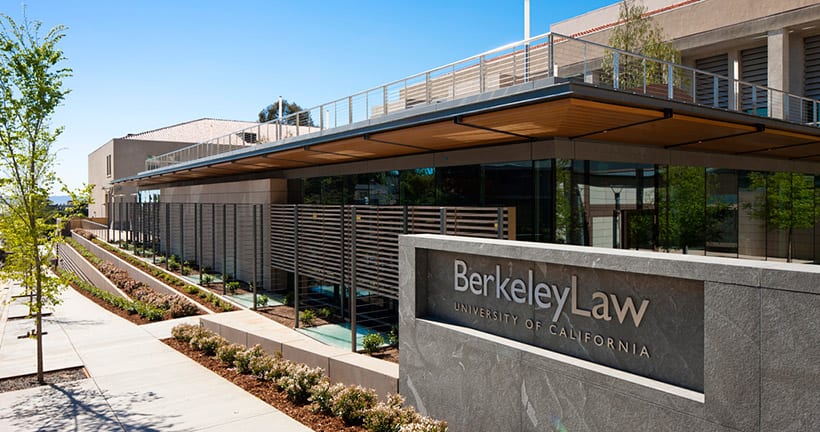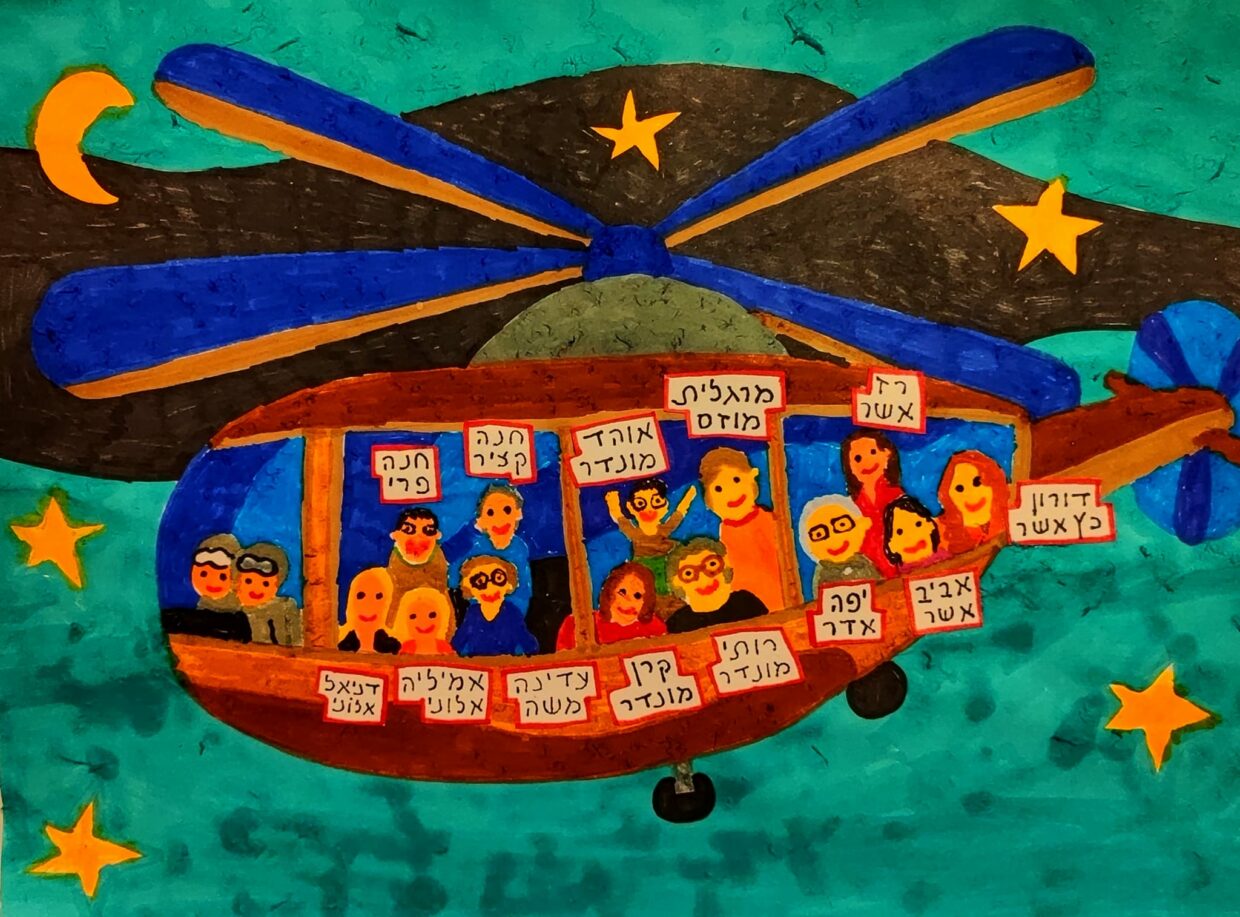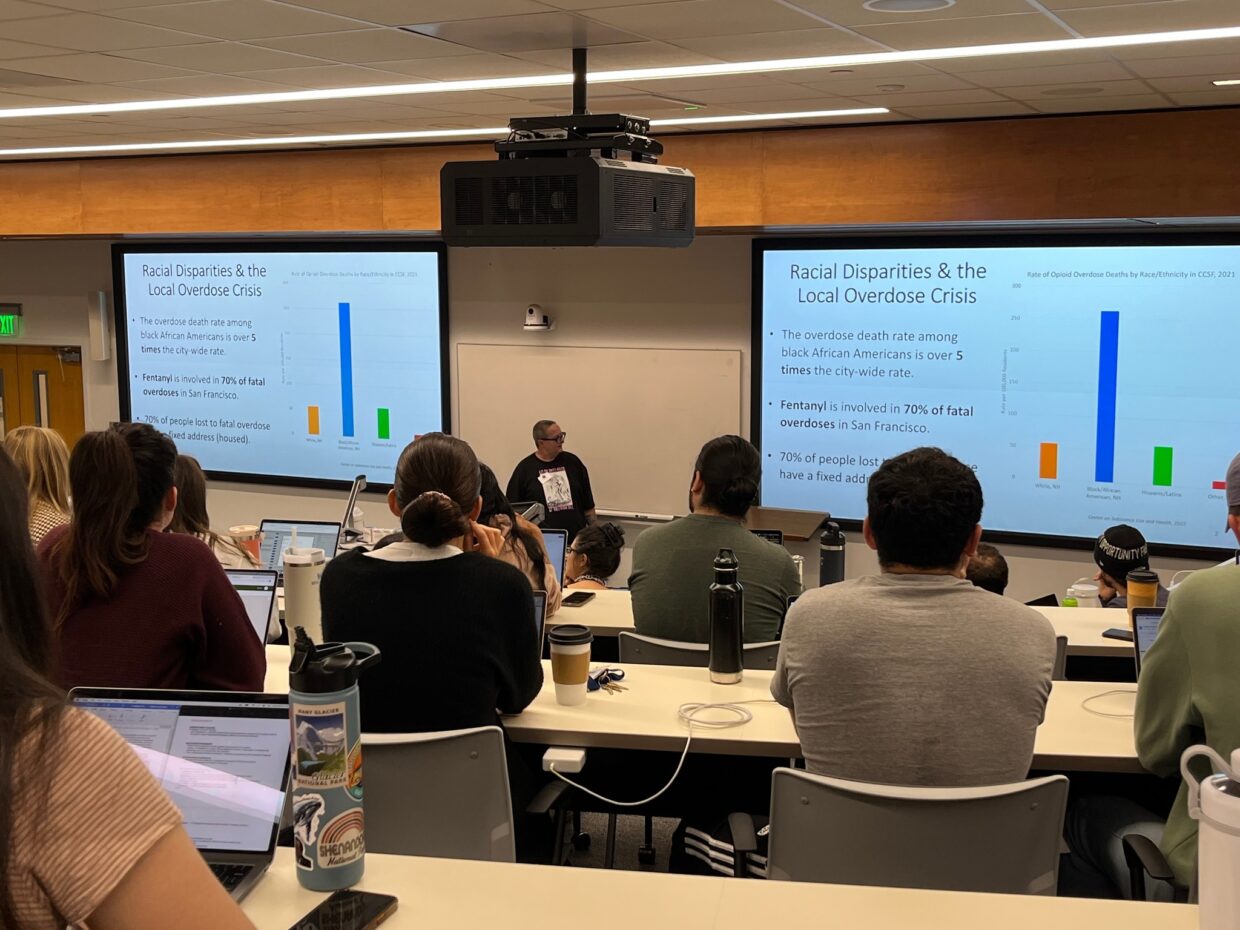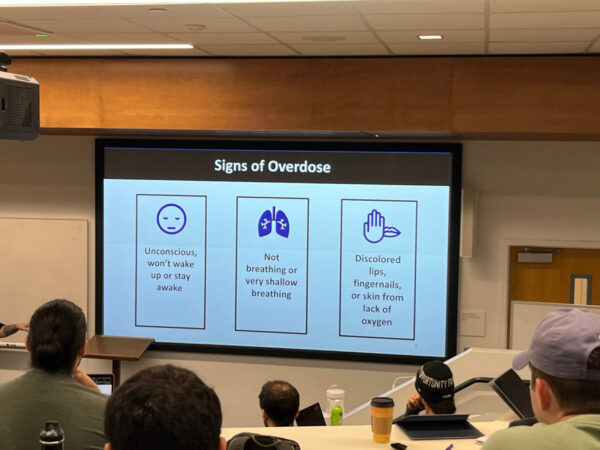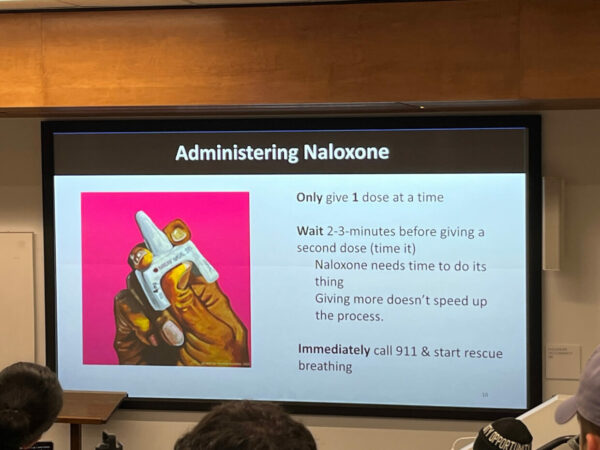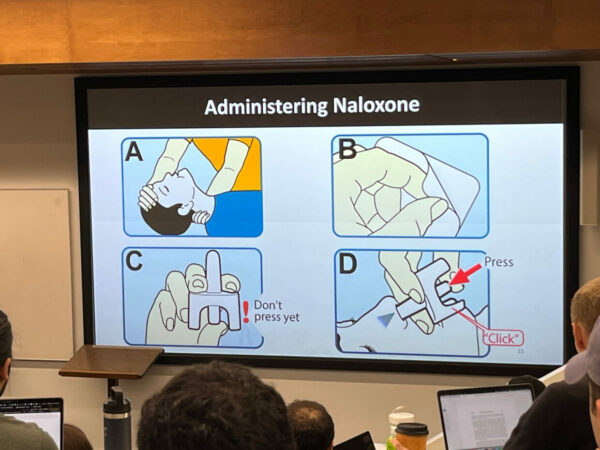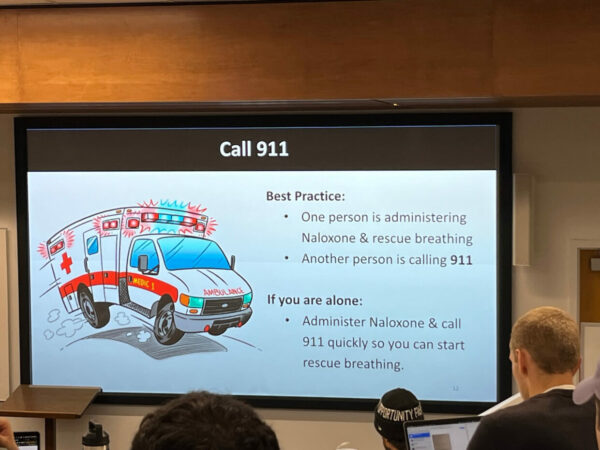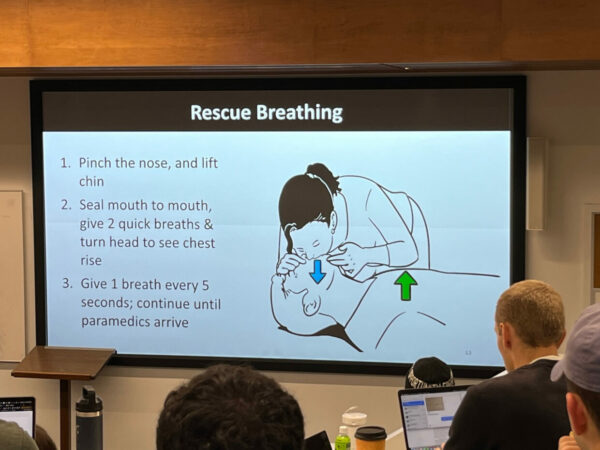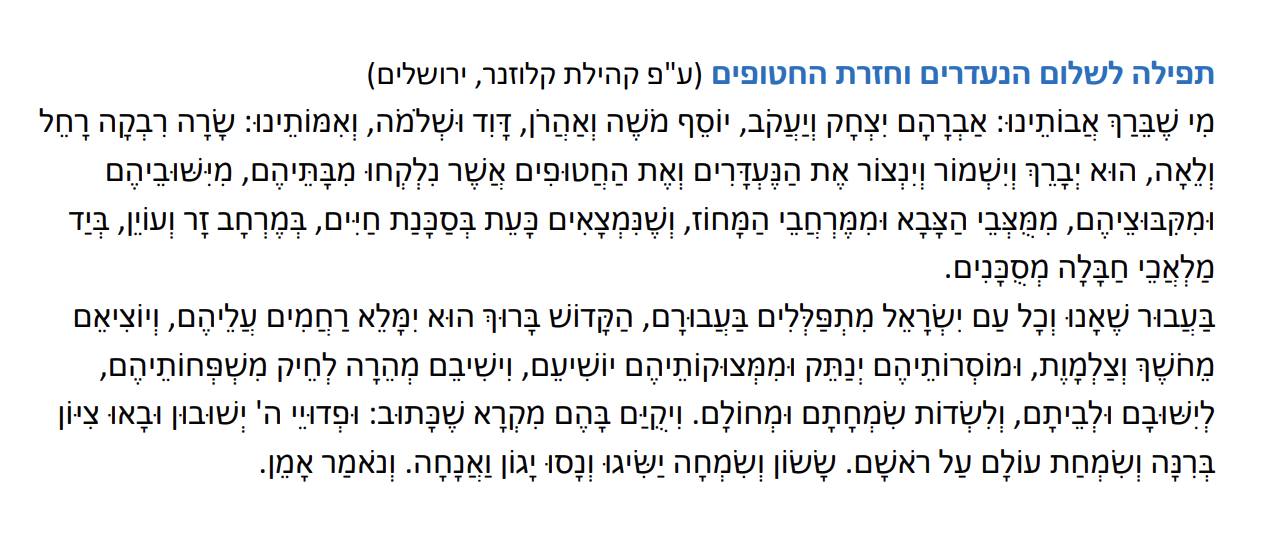Yesterday, while on business on the UC Berkeley/GTU side of the bridge, I ran into a colleague who offhandedly mentioned that the Brandeis Center was suing the university for its antisemitism. I swiftly got hold of a copy of the complaint, which you can find here in its entirety:
Brandeis Center Complaint 1… by hadaraviram
Let’s parse out what is going on here.
Much of the complaint walks well-trodden paths I know merely from being a Jewish-Israeli-American academic on both sides of the bridge. Yes, yes, yes, yes, being Jewish, and especially Israeli, on American campuses these days is like swimming through a river of shit. But experiencing distress, ugliness, and hostility in itself is not ground for legal relief. Moreover, expressed opinions, odious as they may be to the listener (and even when expressed in an odious manner), are protected under the First Amendment. So, what is the legal argument being made?
Brandeis’ argument is more or less the following: Beyond the hostile work environment experienced by Jewish students, various law school student clubs (whose activities, notably, are unrelated to Israel/Palestine) have required that their members, if Jewish, (1) disavow Zionism or (2) attend a “Palestine 101” class in which they are told Israel has no right to exist. It looks like the law school clubs are trying to skirt around limitations pertaining to religious discrimination by allowing Jews to join, but only what they consider to be the right kind of Jews: anti-Zionist ones. These limitations extend not only to the students, but also to speakers and to people hoping to publish articles in some of Berkeleys’ law journals. These loyalty oath requirements and reeducation camps preceded the current crisis by at least a couple of years. I vividly remember giving a talk about FESTER at Berkeley’s Center for the Study of Law and Society a couple of years ago. The talk, which had nothing to do with Israel or Judaism, was advertised on Twitter by Berkeley’s media team, and some of the commenters replied by tweeting, “but will the students let them speak?” I didn’t encounter any problem that day, but to be fair, I was there by invitation of my colleagues to speak to colleagues, and student clubs were not involved. Because I would never agree to loyalty oaths or gulags, I imagine that some student clubs (including those concerned with prisons or healthcare) would not invite me to speak there, and I also imagine that it’s not worth my time and effort to send papers to any UC Berkeley journals, because they will not be judged on the merits (for those of you scratching your heads, the law review publication market is insane; not only is the article selection not anonymous, but people actually submit their CVs alongside their articles. This explains the bizarre incident a few years ago, in which some student in a law school that shall remain anonymous asked me to omit my military service from my CV so that he’d be able to persuade his fellow student editors to publish the piece. So none of this surprises me in the least.)
[As an aside: Even though most of the stench wafting from this lawsuit emanates specifically from Berkeley Law, Erwin Chemerinsky or the law school are not being sued, and neither are the particular student orgs, which I find curious. I would love to know why, though I suspect it has to do with Chemerinsky’s recent op-ed expressing his dismay about virulent antisemitism and/or with the expectation of having responsible adults as adversaries.]
Berkeley’s counterargument, I imagine, will go something like this: none of the student club behavior, and none of the university’s tacit or explicit endorsement of these rules and exclusions, is antisemitic, because none of it bars Jews from participation. It only bars people who are openly Zionist. And here’s where things might get interesting.
In 2010, the Supreme Court decided Christian Legal Society v. Martinez. The respondent is my colleague Leo Martinez, who was Acting Dean at UC Law SF (formerly Hastings) at the time. The plaintiff was an off-shoot of CLS-National, an association of Christian lawyers and law students, which charters student chapters at law schools throughout the country. Like Berkeley, UC Law SF is a public school with nondiscrimination rules in its charter, and subject to the Bill of Rights. Under this nondiscrimination regime, UC Law SF had an “all-comers” policy for its student orgs: they must be open to participation of all students. CLS, however, required that all its charters adopt bylaws requiring members and officers to sign a “Statement of Faith” and to conduct their lives in accord with prescribed principles. Among the tenets that prospective members had to commit to was the belief that sexual activity should not occur outside of marriage between a man and a woman; CLS interpreted its bylaws to exclude from affiliation anyone who engages in “unrepentant homosexual conduct.” CLS also excluded students who hold religious convictions different from those in the Statement of Faith. In light of these requirements, UC Law SF refused to approve CLS as a registered student organization (RSO), which denied CLS access to university funding.
The Supreme Court ruled against CLS (which led to much rejoicing at the next faculty meeting, as you can imagine.) Justice Ginsburg, who wrote the majority opinion, found the “all-comers” policy reasonable, and the balance struck with CLS (they can host events as an outside entity–just not allowed to receive money from the school) constitutionally proper.
The situation with the Brandeis lawsuit is a bit different, because it comes from the opposite side: a complaint from students who cannot access these organizations and opportunities. Since Berkeley, like UC Law SF, has an “all-comers” policy, it looks like whether or not these clubs have run afoul of it depends on whether you accept Brandeis’ premise that “Zionism is an Integral Component of Jewish Identity.” At least for some Jewish UC Berkeley students (as recent events have obviously proven), this is not true–one might even say that anti-Zionism is an integral component of whatever identity they have, Jewish or otherwise. In an interview to the Jewish News of Northern California, Dean Chemerinsky estimated that “to say anyone who supports the existence of the State of Israel–that’s what you define as Zionism–shouldn’t speak would exclude about, I don’t know, at least 90 percent of our Jewish students,” though more recent events might suggest otherwise. I don’t know, and neither does anyone at Berkeley, because no one has done a survey, and moreover, in all the disputes about who is and is not a Zionist, one is often hard-pressed to find a solid definition of Zionism (or even any rudimentary education on the subject.) The question remains: Is Zionism “an integral component of Jewish identity?” And it it is to some but not to others, is it to be regarded as religious discrimination if, for Jewish Zionists, it is?
Let’s take a look again at the CLS policy from CLS v. Martinez. Notice that, at no point, did CLS deny membership to gay or lesbian members. Presumably, if you are homosexual and keep your homosexuality to yourself, CLS would welcome you. Or, if you’re riddled with shame about your desires and attractions and your homosexual conduct is “repentant,” you should be fine. I think the point of the analysis is that CLS cannot claim to be inclusive of gay people if it is only inclusive of those of them who remain in the closet and are guilty and conflicted about who they are and who they are attracted to (do some people love sad queers in the same way that others love dead Jews?). But is being Zionist, for Jews, the same as being “out and proud” for gay people? This requires a lot of intricate, hairsplitting attention to the components of each identity.
Assume, for example, that CLS had allowed any and all openly gay people to join its ranks, but only if they (1) disavowed support for same-sex marriage (not every gay person supports gay marriage, some for assorted anti-heteronormative reasons) or (2) attended “family values 101” that would teach them that children with same-sex parents are miserable and deprived. Would that pass muster with the Supreme Court? I don’t think so, but if it would, then we need to ask ourselves whether supporting the State of Israel’s right to exist is more of an “integral part” of being Jewish than supporting same-sex marriage is an “integral part” of being gay.
This brings up lots of complicated questions about the relationship of different Jewish denominations, throughout history, with the aspiration to return to Israel. One documented issue that was repeatedly brought up in debates about Jewish emancipation in Europe had to do with the Jews’ “dual loyalty,” to the emancipating country and to their ancestral land. For this reason, when the newly established Reform strain formed their credo and ethos upon inaugurating the Hamburg Temple, they excised from the liturgy not only the Hebrew language, but aspirations to return to Israel and any messianic content. To their Orthodox detractors, that was tantamount to rejecting an “integral component of Jewish identity.” But to the assimilation-hungry Reform congregants, it was nothing of the sort: it was the fashioning of a new, modern Jewish identity that they could live with and feel well integrated with their surroundings. In other words, what is and is not an “integral component of Jewish identity” means different things to different people in different times and places. There are even diasporist critiques of the centrality of Israel to Jewish life, though as Julie Copper points out in this interesting article, they tend to “prove wanting because they contest Zionism on the terrain of Jewish identity” as opposed to “envision[ing] Jewish political solidarity beyond the confines of the nation-state.”
But if we were to envision such solidarity, what exactly would it consist of, except agreeing that living on American campuses right now downright sucks? If, as various organizations like Bend the Arc or Tru’ah argue, our consensus should form around issues of progressivism and tikkun olam and all that jazz, why does it feel like engaging in these advocacies proves a hollow hope from Jews as it produces exactly the opposite of political solidarity? If you take Israel out of the equation, in other words, what is left (pun intended)?
Finally, in the last couple of months I’ve noticed that American Jews and American Israelis experience the issue of Zionism and anti-Zionism in very different ways. Obviously, when people express academic fascination (theoretically or not) with the scintillating question whether or not you and your loved ones have a right to exist, they shouldn’t be all that surprised to find you an unenthusiastic intellectual partner for that exercise, and you’re not likely to enjoy the debate. In 2018, Bret Stephens wrote precisely that:
All this is to say that Israelis experience anti-Zionism in a different way than, say, readers of The New York Review of Books: not as a bold sally in the world of ideas, but as a looming menace to their earthly existence, held at bay only through force of arms. It’s somewhat like the difference between discussing the effects of Marxism-Leninism in an undergraduate seminar at Reed College, circa 2018 — and experiencing them at closer range in West Berlin, circa 1961.
Which raises another cluster of questions: If, as Berkeley will likely claim, Zionism is not an integral part of one’s Jewish identity, is it an integral part of one’s Israeli identity? If the student club policy cannot be classified as religious discrimination, is it discrimination on the basis of nationality? Is it possible to surgically separate one’s belief that one’s country has a right to exist from being a citizen of that country? And, given that, under the Law of Return, every Jew has a right to return to Israel, the Jewish nation state, is every Jew being discriminated against (on the basis of putative nationality)?
I look forward to seeing how this lawsuit evolves and will post more as developments unfold.

